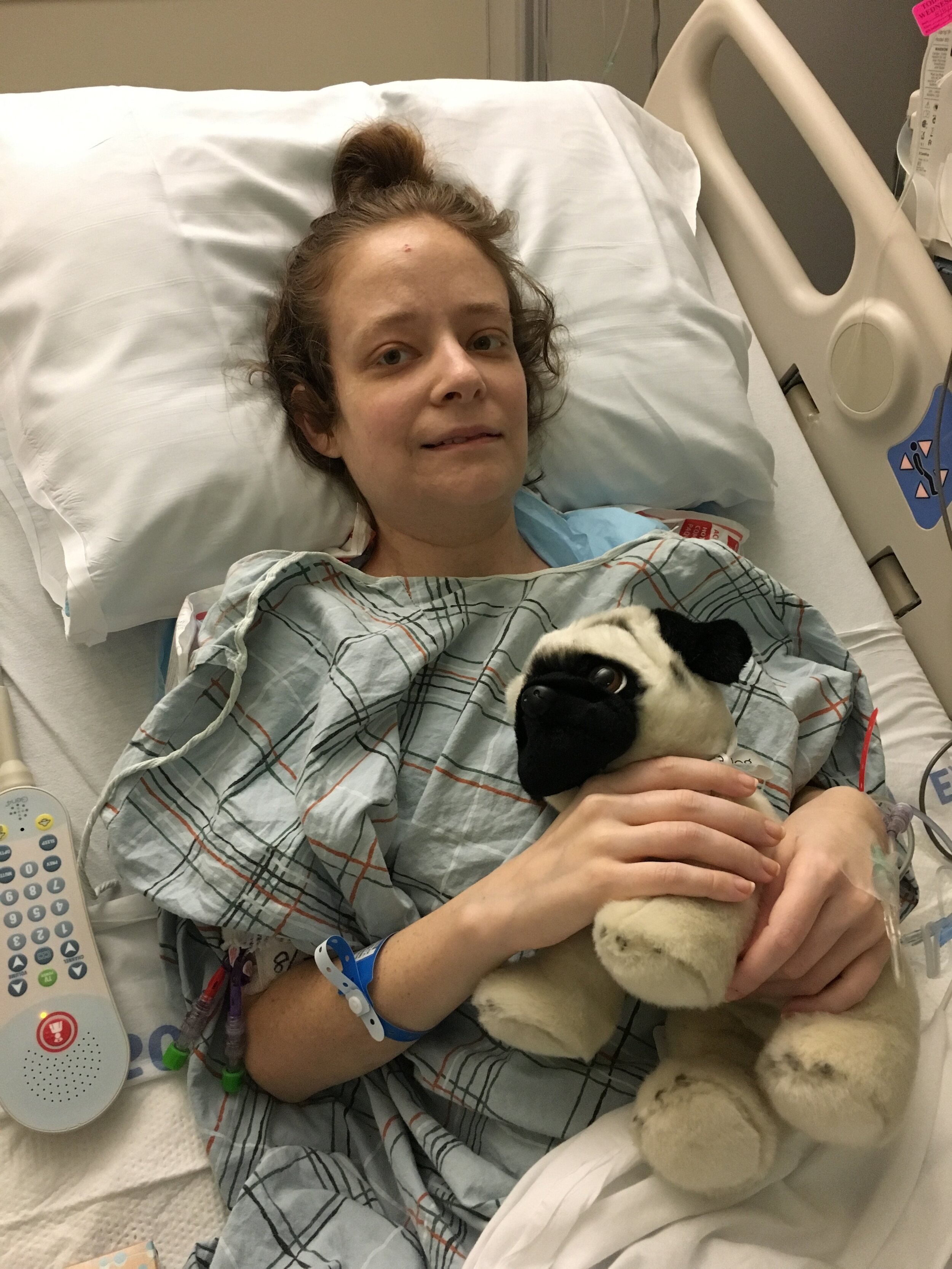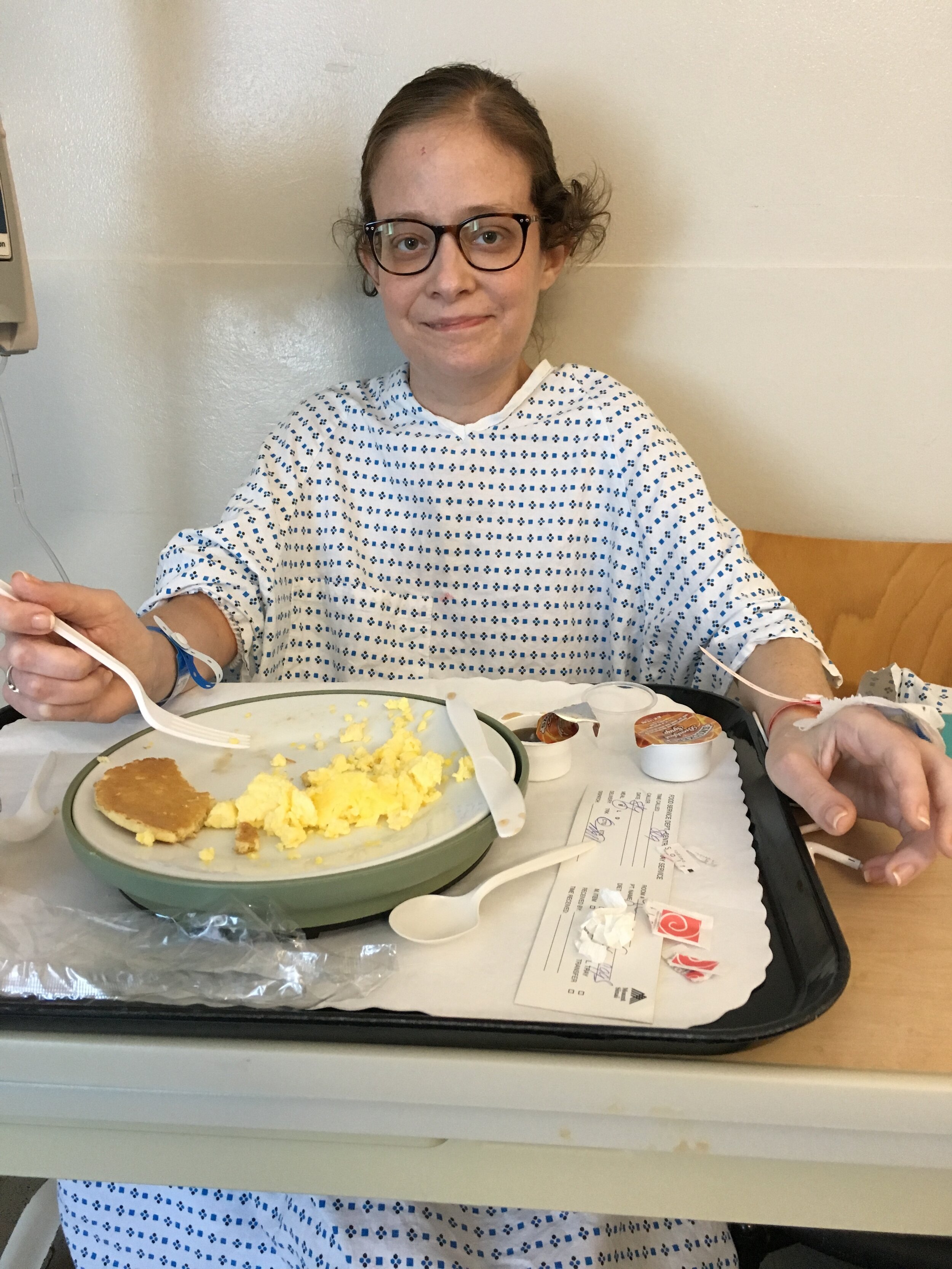Coping | IBD | Ostomy

My ulcerative colitis has isolated me in various ways. I have spent countless days and nights in hospitals and many more sick in bed at home. I have had to cancel plans, miss exciting events, and delay my career and education goals. These moments of isolation were entirely out of my control. However, the stigma surrounding my disease and surgeries led me to isolate myself through silence.
Shortly after undergoing emergency surgery to have my colon removed, I became very depressed. I did not feel comfortable talking about the physical and mental challenges ostomy life posed for me. Most people outside my immediate family did not know I had an ostomy. I hid my struggle, telling everyone that I was “feeling much better” and “all healed.” My second bowel surgery was worse. My loop ileostomy leaked almost daily and burned the surrounding skin. To make matters worse, the wound next to my ostomy was not healing correctly. I found myself going into the city once or twice a week to have it professionally treated. It was a painful and stressful process, and I did not have many people besides family with whom to vent. I did not feel comfortable talking about this intimate problem with friends. Why burden them with the gritty details of this disease?
When I had to turn down get-togethers because of a leaky osto”my or an emergency wound care appointment, I simply told people that I was ”not feeling well” or that I had “stomach cramps”, I did not know how to explain the real problem to them.

I knew that I needed support, but I did not know where to turn. I had often considered attending a local Crohn’s and Colitis event, but at the time, my ostomy seemed to be posing more of a problem than my Inflammatory Bowel Disease. The closest ostomy support group was over an hour away. Nevertheless, I dragged myself to one of their monthly meetings on a rainy Sunday afternoon. I wanted to make a connection with someone who understood what it was like to be a young person with a chronic illness and life-altering surgery. As it turned out, I was the only person under 70 in the room. Now, don’t get me wrong, I met some fabulous and helpful people at this event, but I could not help but feel a sense of isolation within the ostomy community. I had viewed several YouTube videos featuring young ostomates; where were the other young people with ostomies? Were there so few that I would never be able to meet one?
Then, one day while surfing the internet, I came across the Girls With Guts website. I was filled with excitement as I read about an organization that would help me connect with other women of all ages who truly understood the struggles brought on by IBD and ostomy life. I was no longer alone. The organization connected me with a pen pal with whom I exchange emails regularly. We have bonded over both our shared medical experiences and common interests, especially our loves for animals. I also received a plethora of cards from fellow Girls with Guts after a bowel surgery that did not go as planned. Their letters and words of encouragement reminded me that I was not alone and that I would make it through these dark days of recovery. I am no longer ashamed of my struggle; I am part of a community of strong women who happen to have IBD.
The connections and sense of camaraderie I developed through Girls With Guts has left me determined to counter the stigma I felt throughout my early IBD journey. From now on, I am going to be transparent about my IBD journey. I will not shy away from telling people what life is like with an ostomy or a j-pouch. I refuse to sum up my struggle with the phrase “GI issues” or to merely tell people that I had “some colon surgeries.” My hope is that, one day, people undergoing ostomy and j-pouch surgeries will be able to name these surgeries without fear or stigma.
